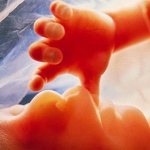A characteristic mark of a society drifting towards totalitarianism is that its political, economic and cultural elites wield power so as to suppress expressions of opposition from those who disagree with their philosophical ideas and policy decisions. We see this, for example, in China and in many Muslim countries where the right to religious freedom is restricted and attempts to introduce democratic political processes are suppressed.
If democratic political systems are to be generative of human flourishing, they have to be based on true notions of justice and human rights. This will not be possible if the natural moral law is not taken as a primary guide for distinguishing between good and evil. A failure to make such a distinction is evident in the adoption of pro-abortion legislation in many democratic countries. Some of this legislation denies a right of conscientious objection to those who disagree with its prescriptions. Since the right to life of innocent human beings is foundational to the building of a humane society, this outcome should be of grave concern to all who are concerned with the defence of democratic ideals and the construction of a just and humane society.
The Totalitarian Drift of Moral Relativism
A significant victory for the pro-abortion ideology was the election of Barack Obama as President of the United States. On his third day in office, he issued an executive order repealing President Bush’s prohibition against the use of U.S. tax dollars to fund agencies abroad that perform abortions. He signed another executive order increasing U.S federal funding for embryonic stem cell research. He has had a healthcare reform bill passed by the U.S. Congress that — in the absence of any federal law to the contrary — has the potential to allow for federal funding of abortion. He has nominated abortion rights advocate Elena Kagan to the U.S. Supreme Court, and his administration is reported to have plans to allow abortions in military hospitals.
Meanwhile U.S. Secretary of State Hillary Clinton struts the world stage campaigning for “reproductive health care and family planning,” something which she believes requires that access to abortion services be regarded as a basic human right. Nancy Pelosi, Speaker of the U.S. House of Representatives, also supports abortion rights. An item published in the July 15, 2010 edition of LifeSite News stated: “U.S. House Speaker Nancy Pelosi, a self-professed devout Catholic, will receive an award from abortion giant Planned Parenthood at a reception Thursday evening. The award will be given in recognition of her efforts in passing the federal health care legislation, and in particular for her help in ensuring that the Stupak abortion funding ban was not inserted in the bill.”
In Australia the State of Victoria enacted legislation in October 2008 which not only effectively legalized abortion on demand, but also required doctors opposed to abortion to refer women seeking termination of pregnancy to other medical practitioners not opposed to it. Hence this law denies doctors the freedom to exercise their consciences in a way that would allow them to refuse to participate in an administrative process directed towards the destruction of innocent human life. At the federal level, in March 2009, the Labor Government overturned a ban imposed by the previous Howard government on Australian foreign aid being used for abortion-related purposes in developing countries.
In Europe, a new law came into effect in Spain on July 1, 2010 which legalizes abortion on demand for the first fourteen weeks of pregnancy. In passing the Spanish Congress and Senate, this law declared that abortion is a “right” and it allows minors to access abortion services without parental consent. At the same time it mandated indoctrination in pro-abortion and pro-homosexuality ideology in schools.
In Luxembourg, there is a bill before the Parliament that effectively seeks to legalize abortion on demand and removes the requirement that parental consent be obtained before abortion is performed on a minor. An alternative pro-abortion bill to this one has been introduced by a feminist Member of Parliament that would make it a criminal offence to counsel expectant mothers against having an abortion, even for fathers counseling their pregnant daughters against opting for an abortion.
In Africa, Kenya approved a referendum on August 4, 2010 which revised its Constitution leading to the de facto legalization of abortion on demand, as well as to a dual legal system that would partially establish Sharia Law for Muslims. The Catholic bishops of Kenya call for a ‘No’ vote against the constitutional revision proved futile. There are fears that this law on abortion in Kenya could have a domino effect on the rest of Africa. The Obama administration contributed several million dollars to fund an education campaign advocating a ‘Yes’ vote for the constitutional revision and praised the people of Kenya subsequent to the approval of the revision by 70% of the populace.
The Status of the Human Embryo
The examples cited above of the increasingly totalitarian drift of the pro-abortion juggernaut could be multiplied many times. To arrive at a rational judgement concerning the moral nature of procured abortion or destructive embryo experimentation, it is necessary to first discern when the life of a human being begins.
With the advance of scientific understanding, it has become clear that from the moment of the fusion of the human gametes (male sperm and female ovum), what we have is the initial stage of a continuous human life. The scientific knowledge regarding this newly conceived zygote permits us to be certain that it is a new human being, different and distinct from the parents; it has a human body with all the genetic information present in its chromosomes and as such there is imprinted a genetic process of ‘human’ development. This new human life, which comes into existence with the formation of the one-cell zygote, has an inbuilt capacity to initiate, sustain, control and direct its own development.
It is clear that from the time an ovum is fertilized, the life of a new human being has begun, even though it will take time for its various capacities to develop and evolve. Outlining why it is eminently reasonable to regard the zygote or early embryo as a human being, the Ramsey Colloquium in 1995 issued a statement which said:
“The embryo is a being; that is to say, it is an integral whole with actual existence. The being is human; it will not articulate itself into some other kind of animal. Any being that is human is a human being. If it is objected that, at five days or fifteen days, the embryo does not look like a human being, it must be pointed out that this is precisely what a human being looks like — and what each of us looked like — at five or fifteen days of development.”
What is the Natural Moral Law?
For peace and freedom to flourish in society, citizens must be governed by rules or laws that are in harmony with the tenets of natural justice which stem from human nature. These tenets of natural justice give rise to what is called the natural moral law. It affirms that there are moral norms which in their universally binding character transcend the customs and laws of any given community.
In referring to the natural moral law, Aristotle said:
“There is in nature a common principle of the just and unjust that all people in some way divine, even if they have no association or commerce with each other.”
Cicero (106-43 BC) pointed out that if positive law (laws made by society to govern its people) contradicts the natural law, this will mean the destruction of the foundations upon which civilized society rests. He attributed the natural moral law to the wisdom of a Creator God when he said:
“True law is right reason in agreement with nature; it is of universal application, unchanging and everlasting; it summons to duty by its commands, and averts from wrongdoing by its prohibitions…It is a sin to try to alter this law, nor is it allowable to attempt to repeal any part of it, and it is impossible to abolish it entirely. We cannot be freed from its obligations by senate or people…There will not be different laws at Rome and at Athens, or different laws now and in the future, but one eternal and unchangeable law will be valid for all nations and all times, and there will be one master and ruler, that is, God, over us all, for he is the author of this law, its promulgator and its enforcing judge. Whoever is disobedient is fleeing from himself and denying his human nature.”
St. Thomas Aquinas stated that the natural law “is nothing other than the light of understanding placed in us by God; through it we know what we must do and what we must avoid. God has given us this light or law at creation.”
In pointing out that positive law has to be judged by its conformity to the natural law, St. Thomas stated that an unjust law — such as one permitting the killing of innocent human beings — is not law in the true meaning of the term, but rather is a “perversion of law” (Summa Theologica, Q. 95, A. 2). St. Thomas went on to argue that such laws cannot bind the consciences of citizens, since they are intrinsically evil and cannot be ordered to the promotion of the common good. By introducing such laws, legislators exceed their authority and hence citizens are justified in opposing them.
In his book The Abolition of Man, C. S. Lewis marshaled evidence from ancient Egyptian, Jewish, Babylonian, Hindu, Chinese, Greek, Roman and other sources which pointed to the existence of the natural moral law as the foundation of morality. He argued that the necessary consequence of the spread of moral relativism would be “the destruction of the society which accepts it.” Lewis pointed out that the Natural Law, which he termed Tao, and to which others have referred to as Practical Reason, is not simply “one among a series of possible systems of value,” but rather “is the sole source of all value judgments.” He stated that an “open mind” on this question is “idiocy” and he insisted that “the human mind has no more power of inventing a new value than of imagining a new primary colour, or, indeed, of creating a new sun and a new sky for it to move in.”
The Barbarous Acts of the Nazis
A striking occasion in the twentieth century when recourse to the natural law was deemed necessary to uphold inviolable human rights was in regard to the evils of Nazi Germany. When put on trial in the courts of the German Federal Republic in the years immediately after World War II, Nazi doctors who had killed prisoners in medical experiments sought to justify their behaviour by arguing that they had not acted criminally since what they had done had been authorized by the laws of the Third Reich. In rejecting this defence, one German court ruling concluded as follows:
“law must be defined as an ordinance or precept devised in the service of justice. When ever the conflict between an enacted law and true justice reaches unendurable proportions, the enacted law must yield to justice, and be considered a ‘lawless law.’ The accused may not justify his conduct by appealing to an existing law if this law offended against certain self-evident principles of the natural law.”
Universal Declaration on Human Rights
One of the most important documents produced during the 20th century was the Universal Declaration on Human Rights (UDHR). The UDHR was adopted in 1948 largely in response to the atrocities carried out by Nazi Germany. Not least amongst these atrocities were the crimes of Nazi doctors, some of whom were found guilty at Nuremberg of crimes against humanity for the immoral way in which they had treated human beings in carrying out medical experiments.
The first clause of the preamble to the UDHR begins by stating that “recognition of the inherent dignity and of the equal and inalienable rights of all members of the human family is the foundation of freedom, justice and peace in the world.” The second clause of the preamble spoke of a certain “contempt for human rights” which had “resulted in barbarous acts which have outraged the conscience of mankind”. The third clause of the preamble stated that in order to dissuade people having recourse to rebellion as a last resort against “tyranny and oppression,” it is “essential” that “human rights be protected by the rule of law.”
The UDHR stated that “everyone has the right to life, liberty and security of person,” and that “no one shall be subjected to torture or to cruel, inhuman or degrading treatment or punishment” (Articles 3 & 5). Article 30 stated that “nothing in this Declaration may be interpreted as implying for any State, group or person any right to engage in any activity or to perform any act aimed at the destruction of any of the rights and freedoms set forth therein.”
A point to note about the UDHR is that it did not create the notion of inalienable human rights, nor did it claim that such rights are the product of relativist perceptions. Rather, it speaks of “the equal and inalienable rights of all members of the human family,” something which exists in consequence of the “inherent dignity” of all human beings. In other words, these inalienable human rights derive from the fact of one’s “being human,” they cannot be negated by governments or by any vested interest as Article 30 of the UDHR stated. Thus, since all human beings are obliged to desist from actions which violate the inalienable rights of others, then it follows that there are certain actions – which the UDHR refers to as “barbarous acts” – that are always and everywhere wrong. Consequently, the UDHR is predicated on the assumption that there exists an objective moral law whose norms are immutable and universally binding. In other words, there is a universally binding natural moral law.
The Eclipse of Reason
A characteristic note in the great crimes of the twentieth century was that their perpetrators invented euphemistic terms to cloak the real nature of the ‘barbarous acts’ they were engaged in. Thus, in Stalinist Russia, those who were brutalized for criticizing the policies of the Communist Party were branded as “Enemies Of The People.” The Nazis referred to the systematic attempt to exterminate the Jews as “The Final Solution.” In Communist Vietnam, those intellectuals and religious leaders who after the fall of Saigon were incarcerated for long periods in solitary confinement were said to be undergoing “Re-Education.” In America, the murder of unborn children came to be referred to by pro-abortionists as “The Right To Choose.”
In regard to abortion, the biological data as we have already noted indicates that from the very beginning of its existence, the human embryo is an individual human being and as such has to be the subject of inalienable human rights. The first such right is the right to life itself. Procured abortion is the deliberate killing of an innocent human being. Hence it is a violation of one of the most fundamental principle of the natural moral law.
The word of “CHOICE” as used by pro-abortionists is a euphemism cloaking the real objective of one of the most evil ideologies the world the world has ever known. That this is so is evidenced by the pictures posted below which I obtained from Google Images. One image has the emaciated bodies of concentration camp victims, the other the dismembered bodies of unborn children murdered through abortion. What we are experiencing in the continuing attempt to institutionalize such a barbarous ideology in every country of the world is nothing less than an eclipse of reason.
If there are not more people forthcoming who are imbued with a true sense of justice and of the transcendent dignity of every human being as a child of God, then the world we pass on to our children will be even more violent than the one we were born into. This outcome is not inevitable however. The numbers of those dedicated to justice and to the defense of innocent human life are on the rise. Let us pray fervently that God will strengthen their resolve and guide them in the ways of truth and justice.









